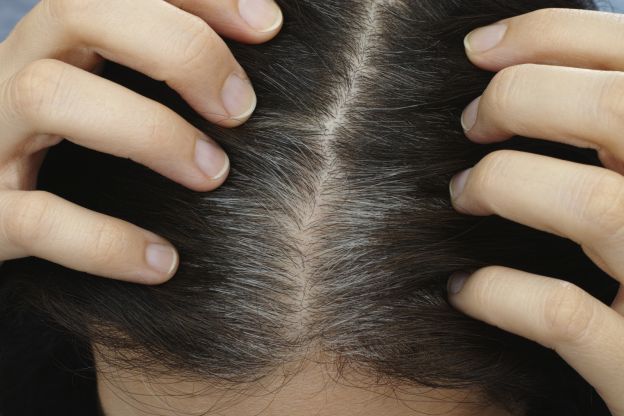Aging is a part of life, and that includes the onset of gray hair. Not everyone will spot grays at the same age, usually due to genetics. But what exactly causes our hair to start graying and why?
To answer this question, let’s break it down by first identifying what exactly gives hair its color in the first place.
HOW DOES HAIR GET ITS COLOR?
Hair gets its pigment from melanin of which there are two types: eumelanin (dark brown or black) and pheomelanin (orange and yellow). These are produced by melanocytes, which are the cells at the base of each hair follicle. As hair grows, it’s constantly receiving pigments that determine whether we are blonde, brunette, redheaded, black-haired or somewhere in between.
WHEN DOES HAIR TURN GRAY?
As we age, our body cells become damaged due to disease, environmental causes or simply, old age. When that happens, hair follicles can lose all their melanocytes, which leads to gray or white hair. Once you spot your first gray strand, that doesn’t mean your whole head will turn gray overnight. As long as you still have normal melanocyte stem cells in other hair follicles, they will continue to create melanocytes for the next hair growth cycle and keep adding pigments to your hair. It’s only when the hair follicles suffer permanent cell damage that hair will continue to grow in gray.
WHY DO SOME PEOPLE GRAY EARLIER THAN OTHERS?
The answer isn’t 100% clear. On average, people start to see gray hairs in their 40’s and 50’s, but it could be much earlier than that depending on your genetics, gender and ethnicity. Women, for example, tend to gray later than men, while Blacks gray later than Caucasians (Asians are somewhere in the middle).
A study in 2014 also confirmed that premature graying could be attributed to a higher number of hair follicles that have become damaged from exposure to free radicals. Smoking, disease and harsh environmental factors (elevated pollution) are all potential causes. And while stress has been linked to hair loss, there is little research proving it triggers gray hair. Bottom line? Genetics are the leading factor in determining when you go gray, so in the end, you mostly have your family to thank (or not).












